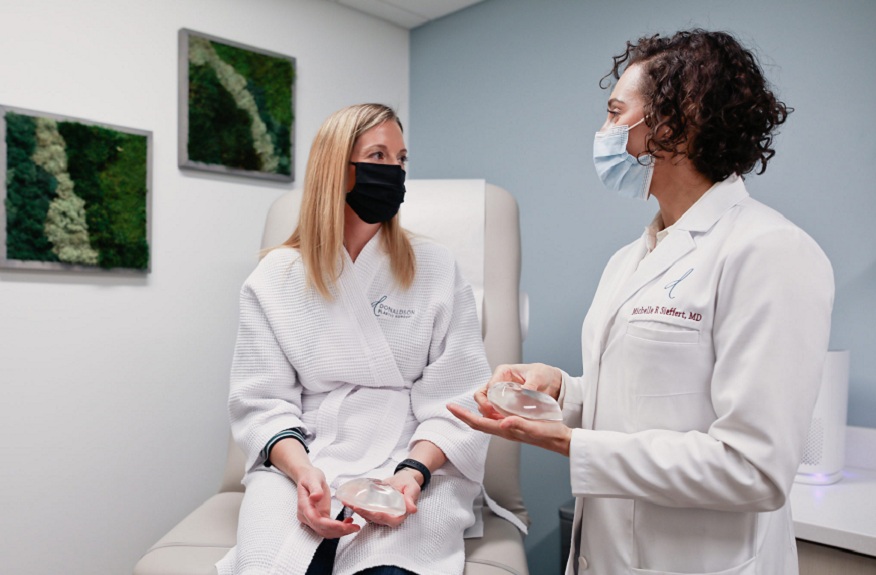Every woman’s journey is unique, from the decision to get a boob job in Turkey to the transformative experience of motherhood. But what happens when these two significant life choices intersect?
Pregnancy is a magical time marked by hormonal shifts transforming a woman’s body. Natural breast enlargement is one of these changes as the body prepares to nourish the upcoming bundle of joy.
Breast implants offer various options, from saline to silicone and placements over or under the muscle. Each choice plays a role in how pregnancy may alter its appearance.
Factors To Consider Before Getting Implants If Planning For Pregnancy
- Timing of the Procedure: If you’re considering both implants and starting a family soon, discussing the timing with a plastic surgeon might be wise. They can offer guidance on ideal waiting periods post-surgery before conceiving.
- Placement of Implants: Implants can be placed above (subglandular) or below (submuscular) the chest muscle. The placement can affect breastfeeding capabilities and how the implant reacts to the enlarging breast during pregnancy.
- Material Matters: Saline and silicone have different feels and may respond differently to the body’s changes during pregnancy. While both are safe, discussing potential outcomes with a surgeon can help you make an informed decision.
- Future Adjustments: Be open to the idea that post-pregnancy, you might desire adjustments to your implants, whether a size change or a lift. It can prepare you mentally and emotionally for potential changes down the road.
Post-Pregnancy Changes in Implant Appearance
After the joy of childbirth, some women notice their implants may sag, become more visible, or even alter in shape. It’s a natural part of the body’s evolution.
Can you breastfeed with implants? Absolutely. While implant placement might influence milk production, many women successfully nurse their babies with implants.
Caring for Your Implants during Pregnancy
Pregnancy is a transformative journey, not just for the mind and spirit but also for the body. For women with breast implants, there’s an added layer of considerations. Knowing how to care for your implants during this period is essential to ensure their longevity and appearance.
Importance of Supportive Bras
As your breasts grow and become heavier during pregnancy, wearing a bra that provides ample support is essential. It helps prevent excessive stretching of the skin and ligaments, which can result in sagging.
Opt for bras with wide straps, full cups, and an under-bust band. Materials that allow your skin to breathe, like cotton, are ideal. Remember to get resized periodically during pregnancy to ensure the bra fits perfectly.
Consider wearing a soft sleep bra at night, especially if you’re experiencing tenderness or discomfort.
Tips On Postpartum Breast Care
Postpartum breast care is crucial for every mother, regardless of whether they have implants. This period changes the breasts, primarily influenced by breastfeeding, hormonal shifts, and the body’s natural recovery process. Here are some tips to ensure optimal postpartum breast care:
Monitor for Engorgement
After childbirth, your breasts may become overly full, swollen, and painful due to milk production. If you’re breastfeeding, nurse your baby frequently. If you’re not, avoid stimulating the breasts. Cold compresses can also help reduce swelling.
Wear the Right Bra
Postpartum breasts can be heavier and more sensitive. Wearing a supportive bra can prevent sagging and offer comfort.
Choose bras made of breathable materials, like cotton, to prevent infections and maintain skin health.
Consider Nursing Pads
If you’re breastfeeding, your breasts might leak. Nursing pads can be placed inside your bra to absorb excess milk and keep you dry. Change the pads frequently to avoid bacterial growth and maintain hygiene.
Practice Proper Breastfeeding Techniques
Ensure your baby has a proper latch to prevent sore nipples and facilitate efficient milk extraction.
Try to alternate which breast you start with each feeding to ensure both breasts are emptied evenly.
Stay Hydrated and Eat Well
Drinking water supports milk production and overall health. Ensure you’re consuming a nutrient-rich diet to support your recovery and, if breastfeeding, your baby’s nutritional needs.
Your body’s journey, marked by breast surgery in Turkey and motherhood, is a testament to the ever-evolving definition of beauty and self-acceptance. Embrace each chapter with grace and love.

